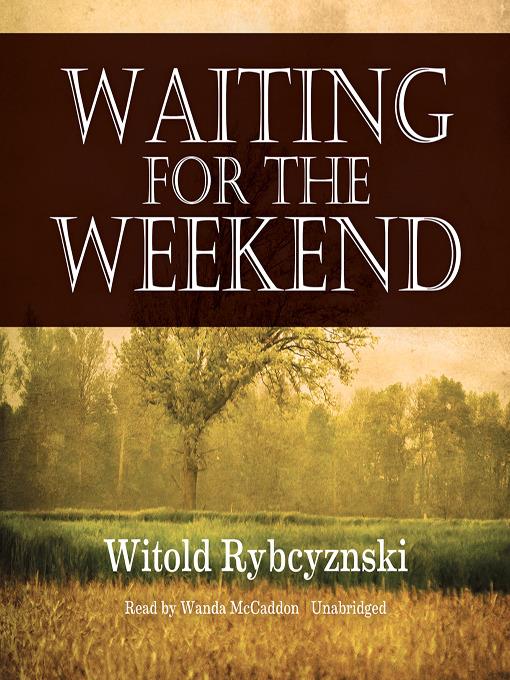
Waiting for the Weekend
کتاب های مرتبط
- اطلاعات
- نقد و بررسی
- دیدگاه کاربران
نقد و بررسی

This leisurely, thoughtful, cheerfully digressive work discusses just what weekends mean and what they have been throughout history. Unfortunately May reads at a relentless, clipped, and steady pace, much more like a Monday or a Tuesday than a weekend. Interesting stories and bits of history salvage the production for those who wish to add variety to a nonfiction collection. In spite of the reader's style, one can sometimes get a feel for the author's intent. However, the audio quality is also poor, with the sound levels varying greatly from tape to tape. J.D.P. (c)AudioFile, Portland, Maine

July 29, 1991
Rybczynski ( Home ) traces the evolution of the seven-day week back to the Babylonian calendar and, more recently, to the Great Depression, when the two-day weekend became institutionalized in the U.S., with shorter work hours viewed as an antidote to unemployment. The common 19th-century European practice of ``keeping Saint Monday,'' or not working on Monday, paved the way for the modern weekend, which the author sees as a reflection of our mechanized culture: ``We want the freedom to be leisurely, but we want it regularly . . . like clockwork.'' In an enchanting, strikingly profound meditation on the relationship between leisure and labor, Rybczynski investigates holy days, precursors of modern holidays, and sketches a social history of reading, TV-watching and gardening. His beautifully written book is full of interesting tidbits: the Japanese language has no word for leisure; 22 million Americans work more than 49 hours a week.

























دیدگاه کاربران